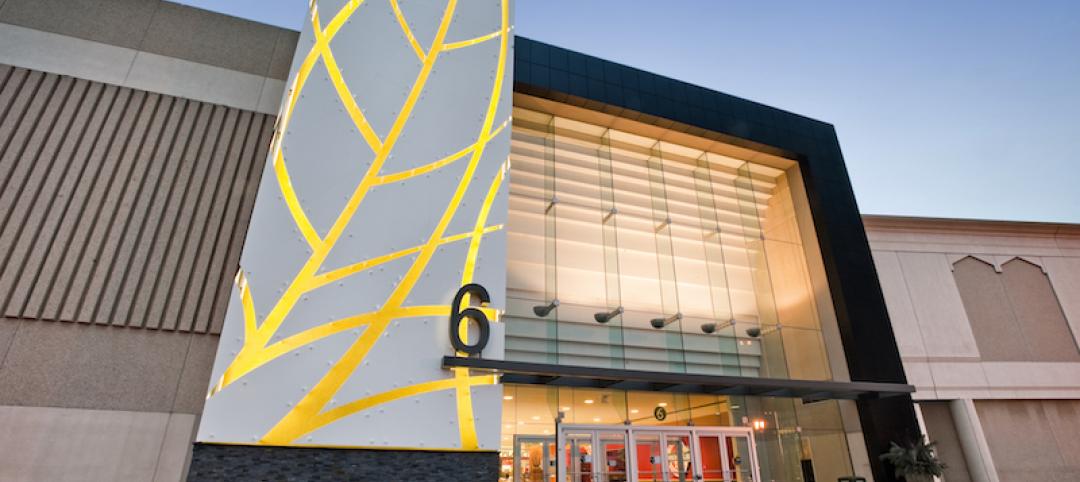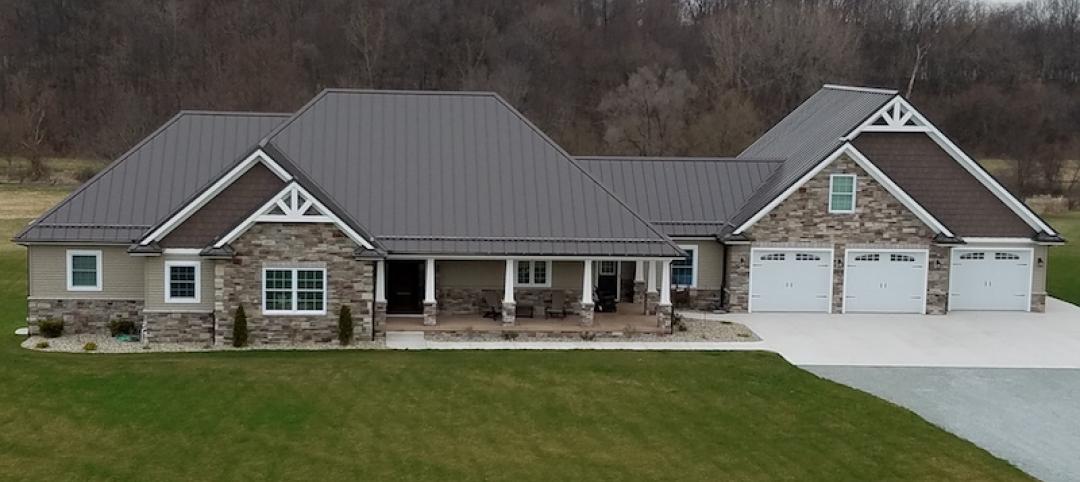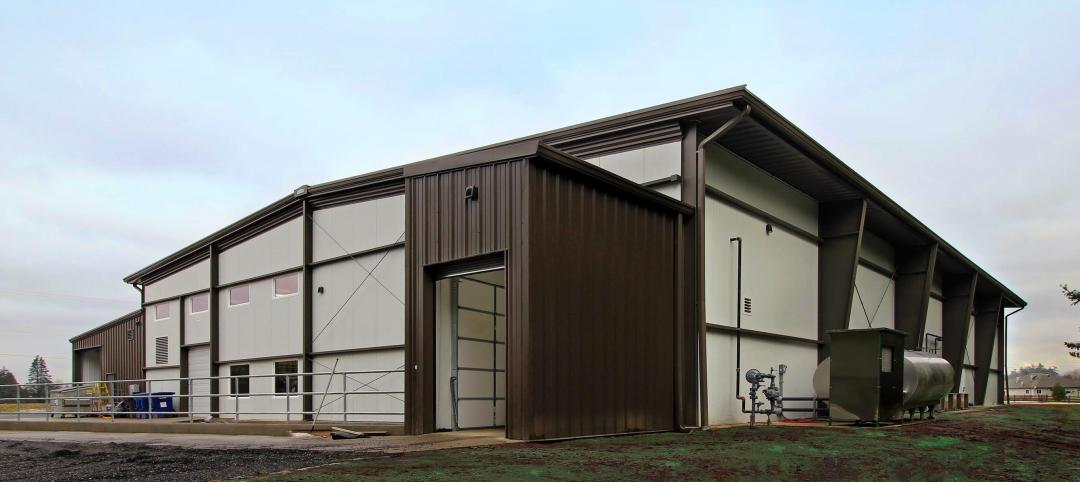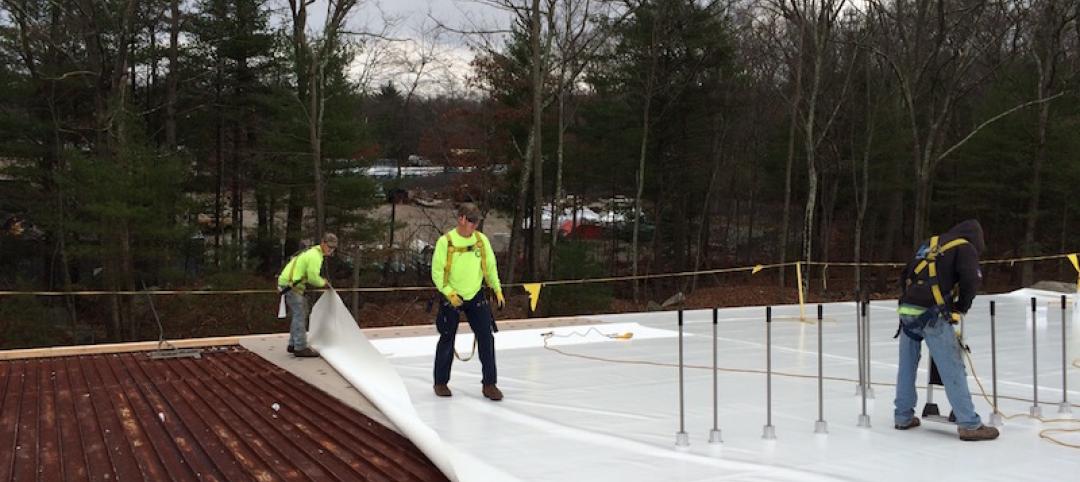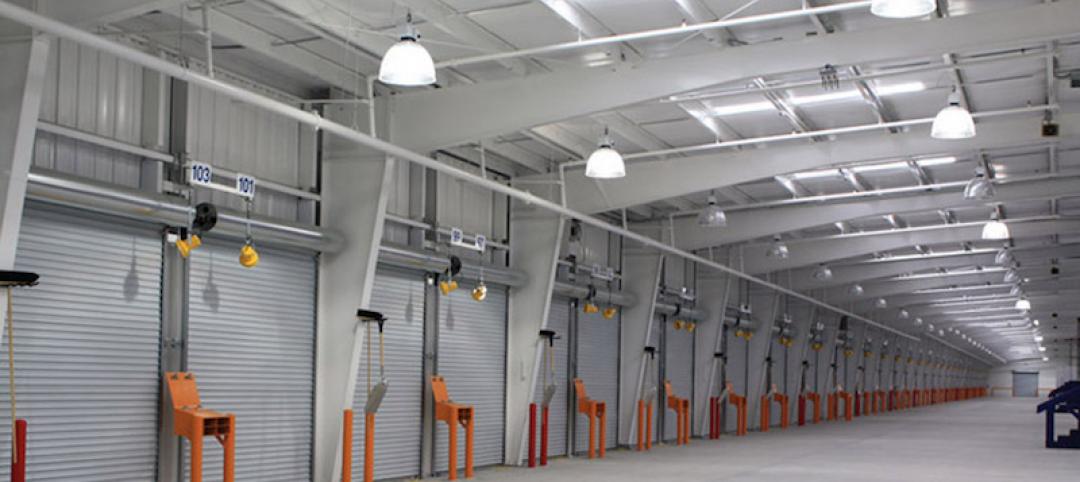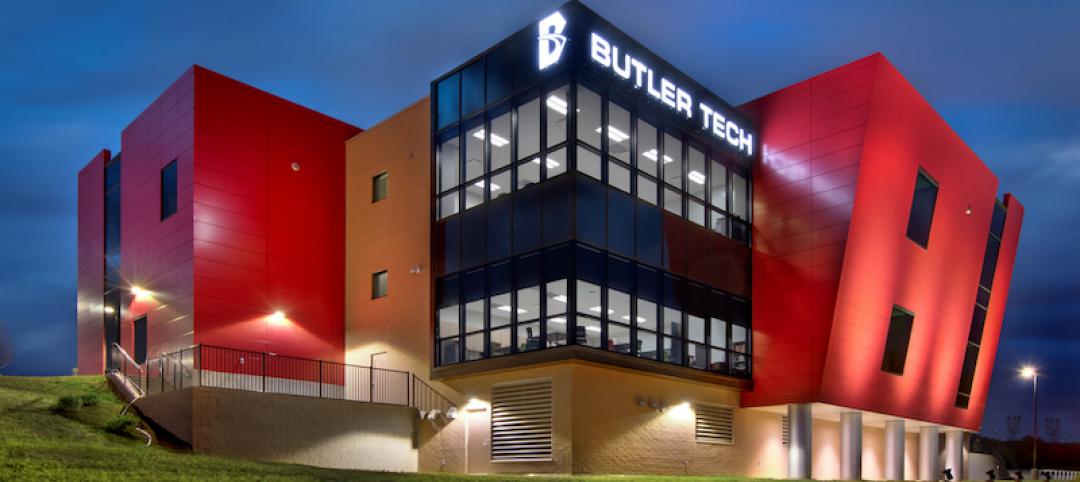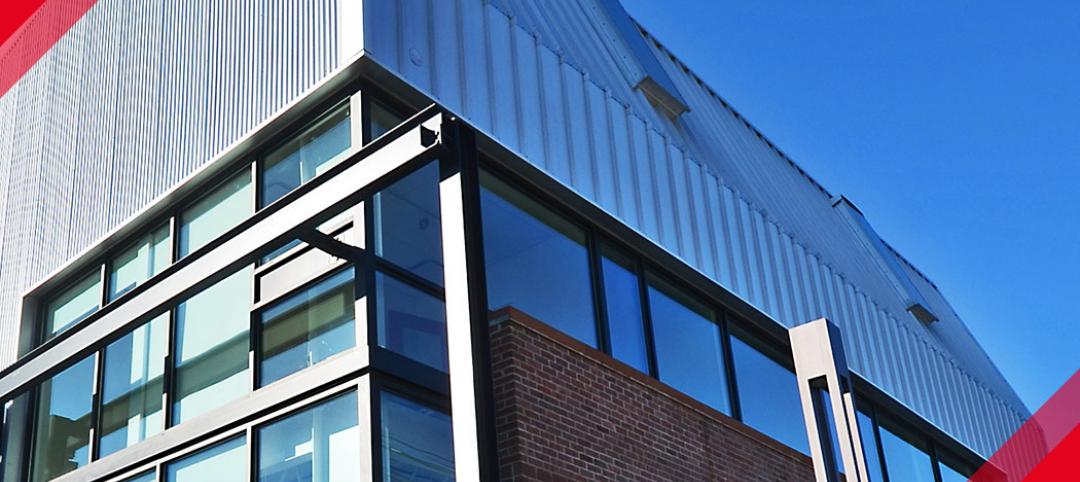Knox College, in Galesburg IL, was in need of more space, and better space, for arts education. Fine arts had been housed with music and theater in a facility built in the early 60’s. The college had ambitions to build a dedicated, state-of-the-art facility with studios for painting, printmaking, design, sculpture, ceramics, drawing and digital art, metalworking and woodworking shops, classrooms, faculty offices, dedicated open studio space for faculty and seniors working on capstone projects, and space to display student work.
If the goal was large, the strictness of the budget was, in a sense, even more ambitious. To meet the college’s construction budget, Star Builder P.J. Hoerr, Inc. knew just what was needed. As Kirk Anderson, vice president of P.J. Hoerr, put it, “We could only do it with a metal building system.”
The college president wanted the building to have large windows, so passersby could see what the students were working on. She also suggested that, the look of the building should be able to “blend into the urban fabric” of the industrial area adjacent to the east side of the campus where the new building was to be situated. In response, Lake/Flato Architects created a unique and striking design with a sawtooth roofline and exciting interior spaces that encourage creativity.
The new Whitcomb Arts Building, a 30,000 sf facility, is actually five metal buildings connected together, custom made by Star Building Systems. About 70% of its footprint is divided by mezzanines into two floors. There are major double-height areas, to provide pinup space for large work, a ‘critique hall.’ There is a lecture hall that accommodates large gatherings and receptions for student work. Facilities for both cutting edge and historical art media include computer labs and film development rooms.
From the builder’s standpoint, it was a very unusual project. “Typically, a metal building is one big box,” explains Anderson. “The unique shape of the building, with parts of the roof having a 24:12 pitch, created some interesting challenges.”
The project was built with a target of LEED gold certification (a final decision on its actual LEED status is still forthcoming), which led to a number of innovative design choices. There had been an older building on the site that was the property of a lumber yard. It was demolished for the new construction, but a significant quantity of wood was reclaimed from that building and re-used in the Whitcomb Arts Building. Classroom spaces, for example, are divided by barn-door style doors made of that reclaimed wood. Other sustainable aspects include extensive use of daylighting, and storm water retention system of bio-swales whose plantings help process and breakdown pollutants in the run-off.
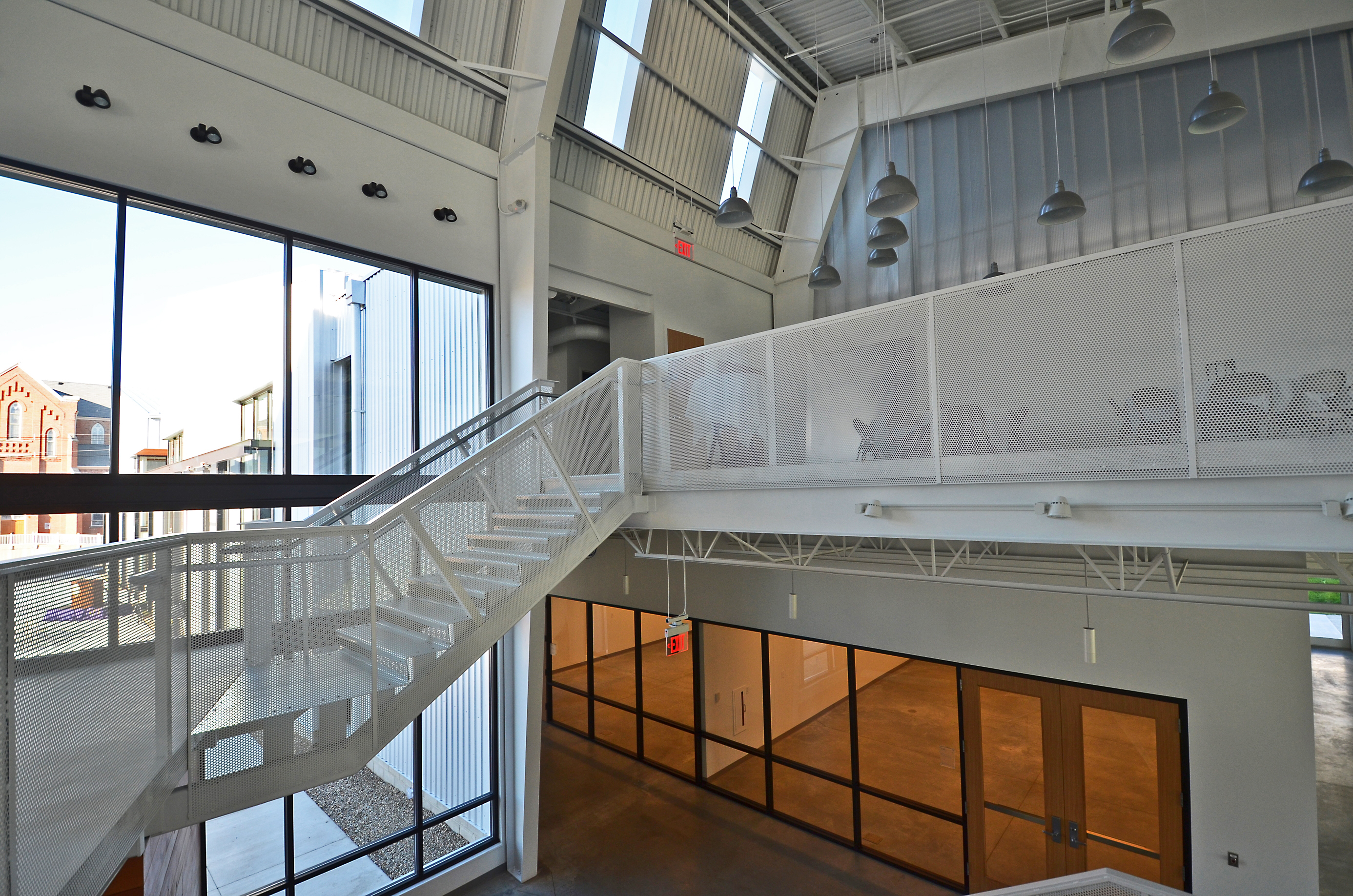
Perhaps most unusual for a metal building is the massive amount of glass. Approximately 40% of the exterior is glass, bringing in a good deal of natural light. The unusually high-pitched, asymmetrical roofs also have skylights. To control sunlight on the west side of the building, the windows can be covered by large, barn-door-mounted perforated metal panels.
The exterior evokes a kind of idealized industrial complex. The rhythmic saw-tooth roofline makes the entire building looking like a single, vast, gleaming machine. The metal standing-seam roof, made with MBCI galvalume-coated roof panels, is echoed on about 20% of the exterior walls, as well, emphasizing industrial roots. The clusters of rectangular glass, and accents of reclaimed brick and reclaimed wood, take it beyond the utilitarian reference, an evolution into something more sophisticated and complex.
The Whitcomb Arts Building project began in November, 2015, and was substantially completed by October 2016 at a cost of $7 million. Star Building Systems made the buildings, and P.J. Hoerr was general contractor, self-performing substantial amounts of the work including the concrete, steel erection, metal cladding, and finish carpentry. P.J. Hoerr, Inc. was named Star Building Systems’ Master Builder of the Year for 2016 for this project. The building was fully opened for student use in January 2017.
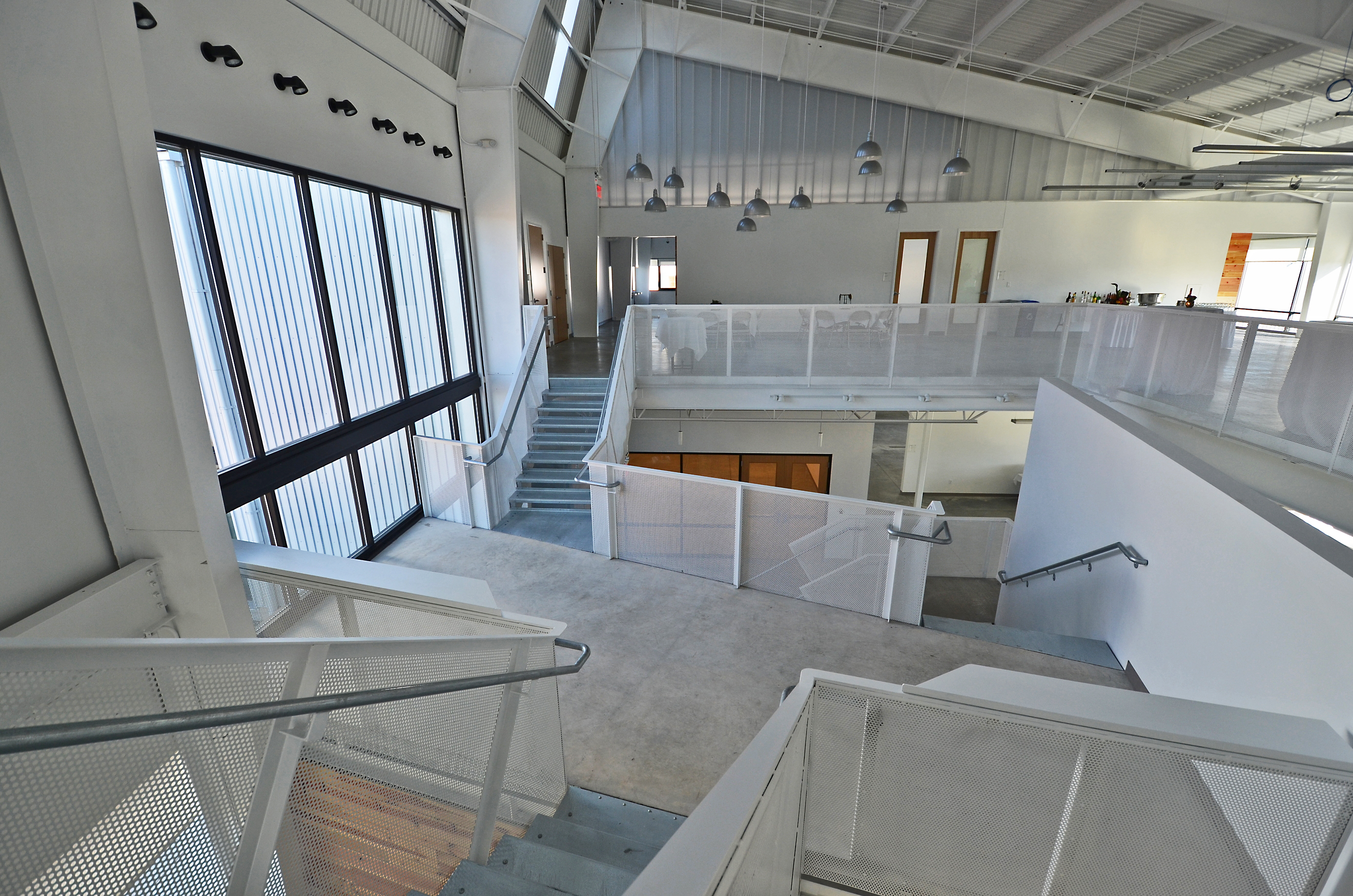
Related Stories
Sponsored | Coatings | Aug 16, 2017
Architectural details offer endless inspiration
Railings, screens, canopies, and shading devices punctuate projects and are important aspects of the built environment.
Sponsored | Roofing | Jun 29, 2017
Metal roofs are soaring in popularity in the residential market
The Metal Roofing Alliance estimates that 750,000 metal roofs were installed on U.S. homes in 2015.
Sponsored | Metals | Jun 15, 2017
Inside-out cheese-making: 12,000-sf metal building features an unusual exoskeleton design
In order to maintain hygienic cleanliness inside the facility, smooth, continuous wall surfaces with a minimum number of joints, indents or protrusions is desirable.
| Jun 13, 2017
Accelerate Live! talk: Driving value through process innovation, Jonathan O'Leary, NCI Building Systems (sponsored)
NCI Building Systems’ Jonathan O'Leary discusses why AEC firms must rely on their partners to simplify the business process and minimize risk.
Sponsored | Roofing | May 24, 2017
Duro-Last Duro-Bond Roofing System installed on New England warehouse
Breault Roofing created a way to make the installation process more efficient by requesting mostly tabless sheets and fastening the membrane with induction welding to the purlins instead of a regular mechanically fastened system onto the pan.
Sponsored | Metals | May 22, 2017
Tapered columns can slim down costs
In many metal building applications, straight columns may have more steel than they need.
Sponsored | Coatings | May 5, 2017
Butler Tech Bioscience Center features hands-on learning in bold new building
Butler Tech students can now study and work in neighboring buildings that feature ALPOLIC metal panels coated in Valspar’s Valflon®.
Sponsored | Metals | May 3, 2017
Steel protection methods
There are robust, well-proven ways to protect steel so it can perform up to its potential virtually indefinitely.
Sponsored | Metals | Apr 28, 2017
Colorful corrugated wall panels provide bright new look for community library
Approximately 2,600 sq. ft. of PAC-CLAD 7/8” Corrugated Panels in five different colors was just what the design team was looking for.
Sponsored | Coatings | Apr 27, 2017
Community center makes a statement in West Sacramento
It takes a team to find the perfect color combination, and this time we accomplished it with the help of CENTRIA.


